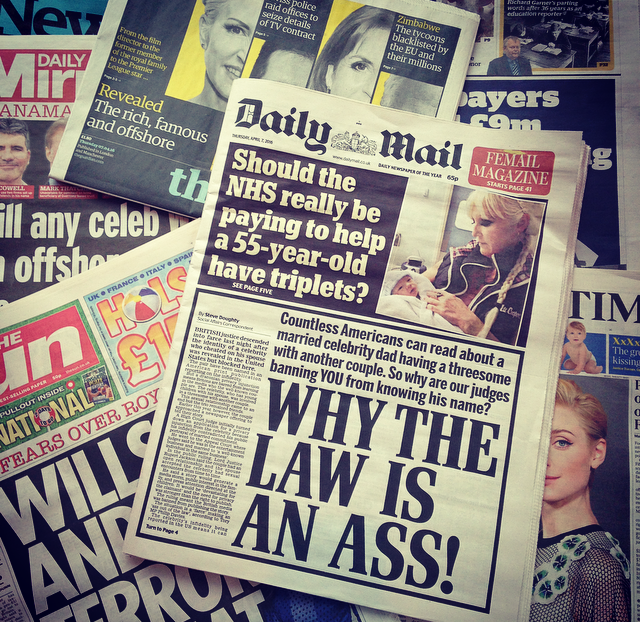Free British press? Why privacy injunction trumps right to know, writes Graham Dudman
IT’s a question often asked in recent weeks of people working in the media: who are the famous married couple involved in a threesome?
Several national papers have reported legal rulings which prevent them telling their readers.
The Sun was outraged when it was gagged from naming one half of the very famous couple who had committed adultery including a three-way session.
The paper had originally won a hearing in the High Court which ruled the public’s right to know about celebrity hypocrisy was more important than the multi-millionaire household celebrity’s privacy and reputation.
But that was overturned by the Court of Appeal which decided the star’s privacy trumped everyone’s right to know.
The Sun on Sunday ran an article by Jacob Rees-Mogg MP lambasting the decision. Rees-Mogg pointed out: ‘The public has been fooled by a PR appearance that does not recognise the reality.’
The couple’s identity has been an open secret in newsrooms across Fleet Street but nowhere else – until yesterday.
By mid afternoon on Wednesday, anyone in the United States who picked up a certain printed publication (words deliberately chosen carefully) learned the identity of the British stars involved.
But despite the story appearing on the front page of a publication available in countless of shops across the USA, the story remained a court ordered secret in Britain.
If you click on the publication’s website, you are directed to a UK-based online edition which carries no mention of the story.
The publication’s Twitter feed – which on Wednesday afternoon was carrying a picture of its front page naming the celeb – has been changed and all references removed.
Today’s Daily Mirror and Daily Mail carry pieces lambasting the law as an ass.
The Mirror’s Brian Reade fires both barrels asking: ‘Why does an unelected judge have the right to tell us what is morally acceptable?’
The paper illustrates its argument with a picture of an American reading a copy of the publication in front of the Statue of Liberty with the offending print product blacked out.
The Mail also weighs in quoting Bob Satchwell, executive director at the Society of Editors: ‘It is quite ridiculous that people elsewhere can know about the story but people in Britain are not allowed to. It makes a mockery of the system.’
As in the Ryan Giggs case, it will only be a matter of time before the US publication’s report is all over Twitter and the internet. If you look hard enough, you’ll be able to find it by now.
But lawyers at British papers have been so worried about the injunction they’ve not allowed their editors to even mention the name of the American publication.
How mad is that?
Anyone flying from the UK to New York, Miami, Orlando or any US city today will be able to read the story for themselves.
If they bring a copy back home, do they risk having their assets seized for breaching the injunction?
There will be those that sniff this is just another example of tabloid tittle tattle and sleazy gossip.
But it’s about much more than that.
It’s about the wealthy using the courts to trick the public into falling for a carefully cultivated PR image which brings wealth to the stars.
How depressing that in 2016, a story involving the behaviour of one of the most famous British celebrities in the world is widely published in the United States but any UK editor doing the same risks going to jail.
Think we have a free press in Britain?
Think again.
Graham Dudman is a former Managing Editor of The Sun and Editorial Development Director at News UK, working across The Times, Sunday Times and The Sun. He is chairman of the editorial advisory board at News Associates. Follow Graham on Twitter @1dudders



